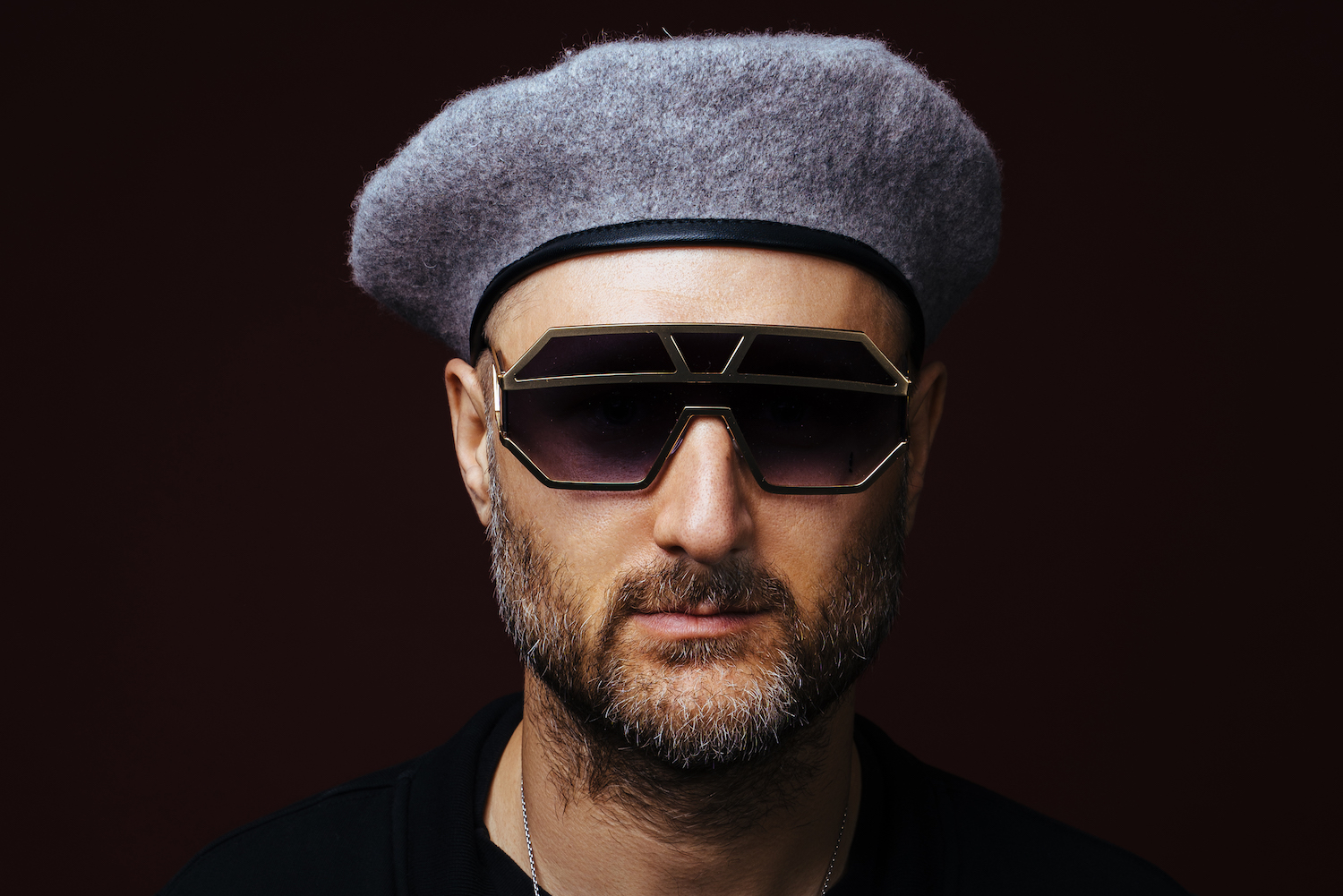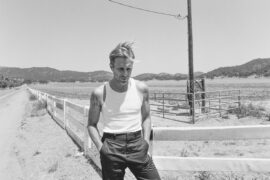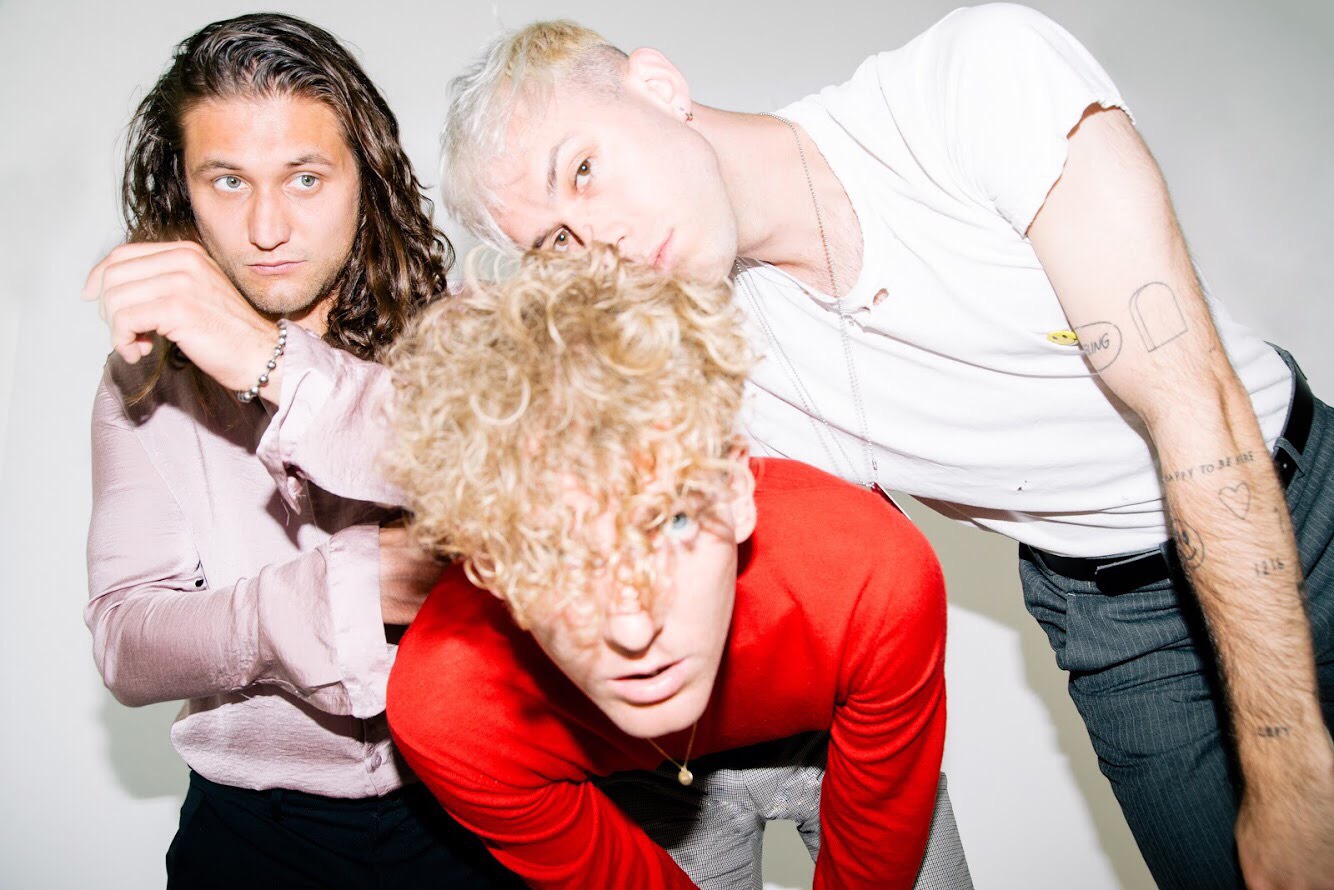Returning with her newest single “shadow of you,” Celine Wanyi ushers in a new chapter in her artistry – one leading with unapologetic authenticity, multi-faceted artistry, and bold creative imaginations.
Stream: “shadow of you” – Celine Wanyi
I’d describe my music now as ‘heartbreak therapy.’ It’s a way to process those emotions and experiences.
Music has always been a part of Celine Wanyi’s life, and she’s lived several lives through it.
From childhood karaoke sessions, a degree at Berklee College of Music, and a debut EP under her belt, the Singapore-born, Hong Kong-raised R&B singer has already seen strides in her music. Wanyi now returns with single “shadow of you,” a deeply resonant track honing sensual hums and lush undertones, while exhibiting her extensive vocal ability. The track arrives as a powerful return since her 2021 EP, twentysomething, but also represents a brand new chapter for the artist. Shedding her prior alias, WANYI, and now going by Celine Wanyi, the singer is bridging the gaps between all sides of herself, bringing together her past, present, and future.
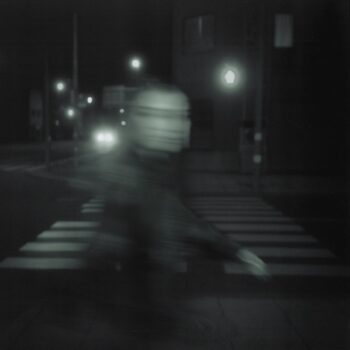
Known for her four-octave vocal range, Wanyi utilises this as a tool to push herself within her creative capabilities, and this single presented many firsts for the artist. Working with the internationally renowned Jacob Ray, Wanyi shares that “shadow of you” was the first time she worked with another producer in this capacity. As a self-taught producer, Wanyi is accustomed to being in the drivers seat when it comes to producing her music. In terms of her rebranding, she shares that it isn’t just her name that has shifted, but a creation of space where rumblings of true authenticity may burst forth.
Sharing that the persona, WANYI, began feeling like a mask, she confides, “It made it harder to connect with people, and that’s when I realized something wasn’t right.”
She continues, “I’ve been figuring out how they can both coexist – how I can merge them in a way that feels right.”
What arrives is a sparkling new single, with grey hues and gliding vocals that orbit in a dream-like state of visual richness. On the track, she shares further, “I wrote this song aiming to capture the feeling of spiralling and being lost, as well as the repetitive yet non-linear process of moving on from a past relationship. ‘shadow of you’ is about knowing a relationship is over but being unable to get the person’s essence and voice out of your head. Self-discovery has also been a significant recurring theme in my life these past few years – learning who I am on my own, understanding what I think and feel without the ‘shadow’ of other people’s opinions and judgments, and recognising which beliefs belong to me and which belong to others.”
Atwood Magazine sat down with Wanyi to discuss her journey in music so far, the conception of “shadow of you,” and what’s to come next in her music.
— —
:: stream/purchase shadow of you here ::
:: connect with Celine Wanyi here ::
— —
Stream: “shadow of you” – Celine Wanyi
A CONVERSATION WITH CELINE WANYI

Atwood Magazine: Congratulations on “shadow of you”! I really love the song, and it’s coming out in a few days. How are you gearing up for the release? How do you feel?
Celine Wanyi: I’m really excited. I feel like I’ve been working on this new body of work for a long time. We’ve been very careful about it – when I say “we,” I mean my team: My manager Leon, my creative director T, and me. We’ve been very specific and particular about what original music we want to put out because it says so much about who I am as an artist. I’m really excited for this new chapter. I think a lot of people have been waiting for me to release original music. The last release I had was in 2021, and that was during COVID, so I didn’t get a chance to promote it properly. This will be my first release with the full team, and I’ll also get to do shows. I’ll be visiting LA, then heading back to Asia for the holidays, so I’m really excited about it.
The track also means a lot artistically, in terms of my growth. My older music was a bit experimental since I was still figuring things out. I pretty much did my first EP on my own and learned to produce during COVID. It was a very experimental time, learning how to build my home studio and producing by myself. This time, I feel much more seasoned. I’ve written more songs and practiced producing, sometimes not even putting them out but just to improve. That’s how I feel. I’m really excited about it. Even though “excited” sounds simple, I truly can’t wait. It feels more official now, with a whole team backing me. Before, it felt more DIY, which I think was necessary to get to this point. Going through that phase helped me find my direction and develop a clearer vision for this project. Yeah, and we’re still independent, so there’s still that DIY element. We’re still figuring out how to promote this and find what works best for me, without being too viral-leaning, because authenticity is the main goal for me.
You mentioned “viral-leaning,” is that something you’re intentionally avoiding? Or is that about balancing the social media aspects with your artistry?
Celine Wanyi: Well, both! I’m pretty old school – I think music should come first. Everything else should complement it. For me, it’s always about the melody, the lyrics, and the meaning of the song before any viral campaign. Some people might tell you to go viral, but that doesn’t really work for me. I’m classic; I like simple things, like a really good hoodie, quality coffee, quality food. I enjoy things that last. I like comfort and stability in my relationships and friendships. If I like someone, I stick with them for a long time. That’s just who I am, and I like my routine. Like, I’m a dog person, haha! As for virality, I think it’s about at what cost. Being viral isn’t the goal for me. As long as what I’m presenting is authentic, I’m happy with it.
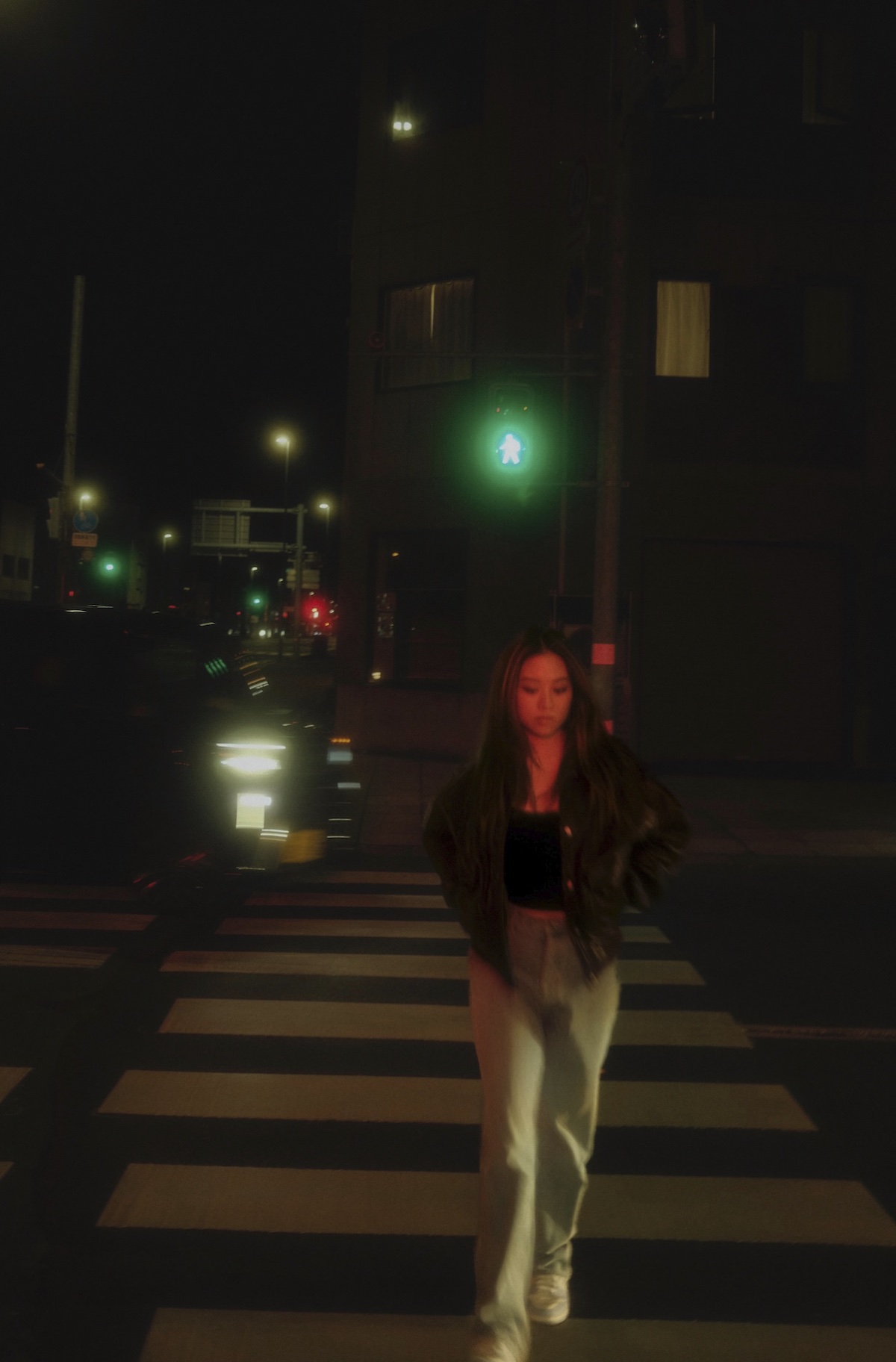
Yeah, that makes a lot of sense. Is it hard for you to block out that noise and stay focused on your music?
Celine Wanyi: We do think about it, and we debate it often. I’m really lucky because my team and I are very aligned in terms of values and how we present me publicly. So far, the thing people have gravitated toward the most is my voice, especially with the covers on YouTube. That’s where I’ve seen the most response and growth. I’m really grateful for that because it’s just me in front of my laptop singing, and it’s amazing that people enjoy that.
Now, about the song specifically – can you tell us about the creative process behind “shadow of you” and what it means to you?
Celine Wanyi: Absolutely. “shadow of you” started about a year ago in LA. I was working with Jacob Ray, who’s an incredible producer. It was my first in-person session in like five years, as I’d been doing remote sessions over Zoom. That day, I was still a little jet-lagged, having just arrived a few days earlier. I remember thinking before the session that I wanted to explore something a little moodier, not too uptempo since I was tired. I just didn’t have the energy for something high-energy. I told Jacob I wanted to try an R&B sound, something that felt more me, something I could relax to and enjoy on my own, or when I’m with friends, or in the car. I had done a lot of pop and dance music in the past, but I wanted to create something that fit my vibe. He totally understood and just started a drum loop. From there, the song just happened. We had the whole song in about an hour. It was super fast and really flowed naturally.
When we start writing, we usually build the track first, then do vocal passes and melody lines. But for this, I hopped on the mic, and the first pass ended up being the full melody of the song, which was crazy. We had the first half of the song, including the lyrics, done within an hour. It was really quick.
That’s crazy. Is that how you usually write? Do you tend to write songs in the studio, or do you bring ideas that you've already worked on?
Celine Wanyi: Both. Sometimes I write as a form of catharsis – like when I’m really in it and need to express myself. During those times, I might make a loop at home or get something from someone else that just clicks, and I’ll use that. It really depends. Sometimes I come in with just a concept. For “shadow of you”, for example, I had the idea of “shadow” and the concept of someone’s essence staying with you after a relationship ends. With that idea in mind, I just went in and flowed with it. So it was very much a stream-of-consciousness kind of thing. I wasn’t trying to think too hard about it; I was just expressing what was going on in my head. I think that’s why it works – it’s not about saying I’m anxious, but about expressing how I feel when I’m anxious and what happens in my mind in those moments.
It’s amazing that it just came together that way.
Celine Wanyi: Yeah, I think the best songs do that. It just flows. I think being jet-lagged contributed to the haziness of it – I wasn’t overthinking it, which probably helped!
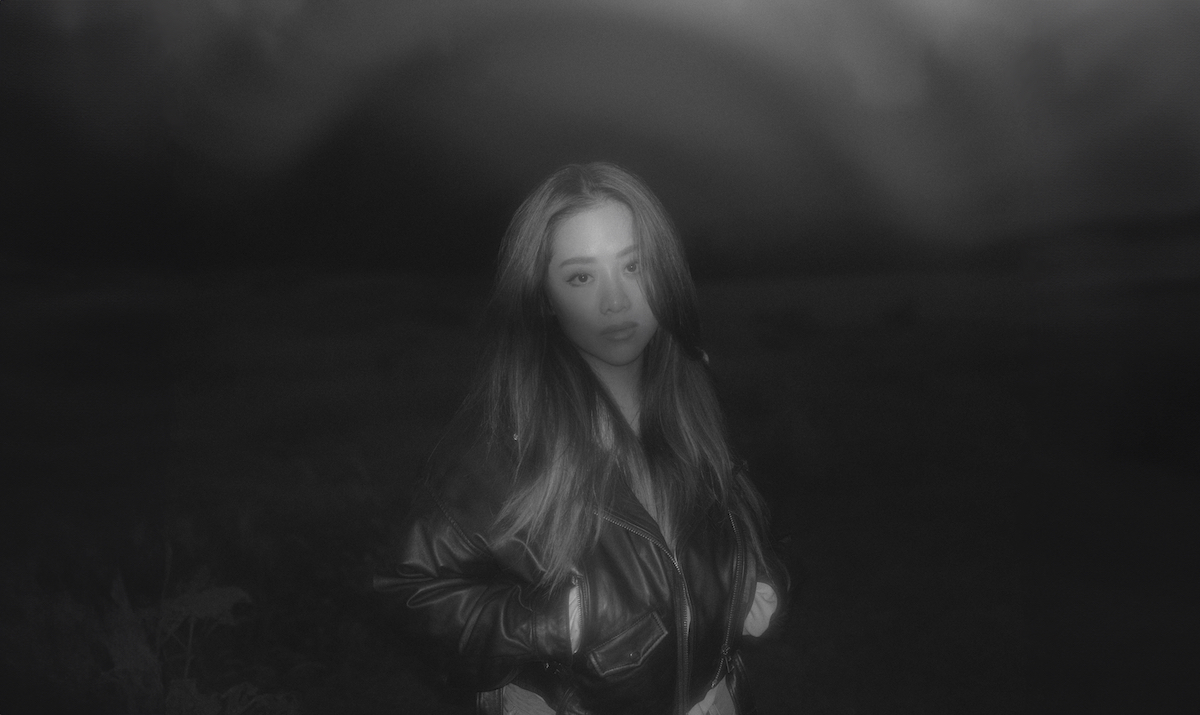
What about the symbolism? You mentioned it’s about how someone's essence or shadow stays with you after the relationship ends. Can you expand on that concept?
Celine Wanyi: When I was writing, I had this strange image in my head – it was like a black-and-white, grayish scene. I could see this person’s face, but they were distant. You couldn’t really see them clearly, and they were walking past you. That’s how I envisioned it. It was like this person’s essence was there, but they were far away, and you couldn’t quite grasp them.
And that’s sort of like the imagery you used in your video!
Celine Wanyi: Yeah, it was like one concept, one singular frame, capturing that essence from the get-go. I find it really helps when I have a visual idea in mind – it makes writing much easier. If I have a visual, a title, or something specific to say, that’s when I think I write the best.
So, do you draw inspiration from things that happen to you, or do you get ideas from visuals – like photos or movies – and write based on that?
Celine Wanyi: It’s usually based on personal experience, especially if a photo resonates with me or if it’s a visual representation of how I feel about something. For example, with “shadow of you”, I had this hazy image in my head of a person walking by, but you couldn’t see their face clearly. That visual helped me capture the feeling of someone’s essence staying with you after a relationship ends. It’s hard to explain – it’s not an exact science. Different songs come together in different ways.
I think that’s really interesting. It’s cool that you get inspired by visuals as well, instead of just feelings or experiences.
Celine Wanyi: Visuals are huge for me. In my home studio in Hong Kong, I have the Phillips Hue bulbs. They’re amazing. They completely change the vibe of the room. You know, you go into a room with those ceiling lights, and it’s just so bland, but then you turn on the floor lights, and suddenly the whole space feels different with that ambient lighting. That’s when the best songs come out.
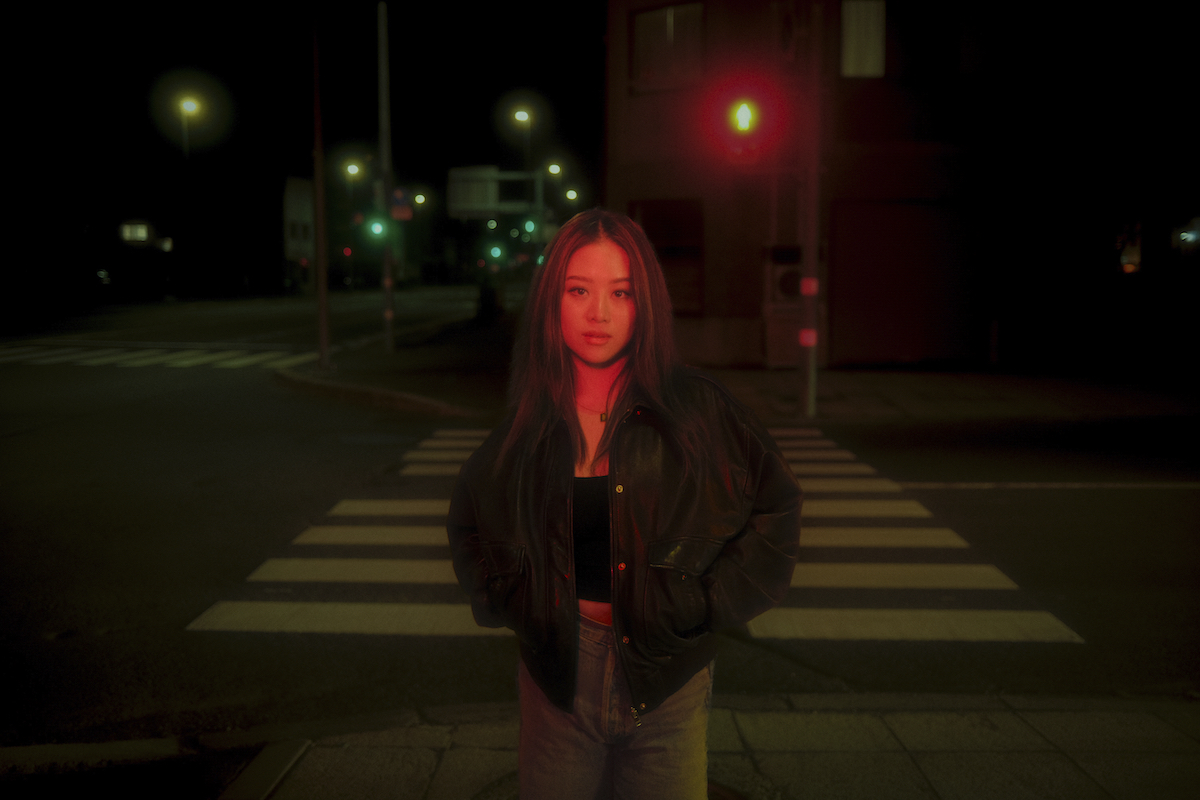
You mentioned that you hadn’t released music in a while, and you also recently rebranded yourself from just WANYI to Celine. Could you expand on this? And what this symbolises for you in terms of a new chapter?
Celine Wanyi: I think WANYI began feeling a little like I was wearing a mask. It’s a stage name, and in my personal life, only a couple of people called me that – my dad when speaking to me in Mandarin, and my grandma. Everyone else calls me Celine. It started to feel more like a persona. For example, when I’d go to an event and someone would say, “Hi, WANYI,” it didn’t feel personal. It felt like a wall had been built. They knew me through social media, and I didn’t feel like I could fully relax or be myself. It was definitely a mental thing. I think it had to do with the fact that I had created this version of myself with all these aspirations and goals, and I felt like I had to present that version publicly. But it made it harder to connect with people, and that’s when I realized something wasn’t right. I wanted to work on it more.
Having a stage name works for some people, like Chappell Roan, for example, who is able to express more through a stage name. Even though WANYI is closer to my real name, Celine is how everyone calls me. So, having my actual first name feels more authentic to me. It just feels better.
I see! It’s almost like the name created a detachment between yourself and your audience. Which makes a lot of sense, because that’s all about your identity as an artist.
Celine Wanyi: Exactly. Now when people say Celine, I’m like, “Yeah, that’s me.” I think I’m finally able to be myself. It’s something I’ve been working on in therapy, combining the ideas of Celine and WANYI. I’ve been figuring out how they can both coexist – how I can merge them in a way that feels right.
Do you think being the artist WANYI impacted the music you were making? Like, did you feel more detached from your music too?
Celine Wanyi: Yeah, not necessarily detached from the music itself. Music has always been a way for me to express myself. I think the detachment came more from feeling like I had to make WANYI into something more than just myself. I felt like Celine wasn’t good enough, or wasn’t good enough to make the music that I wanted to make. I had to be something else. It was like an outside expectation on me, but it was still me, you know? It’s something I’m still working through. It’s a pressure that I put on myself, and I’m learning to let go of that.
Thank you for sharing that. I think “shadow of you” is really a great marker of your growth on that front. Do you have any influences at all when you work on your music?
Celine Wanyi: I definitely have influences, and there are artists I love to listen to, but for this song, I don’t think there was any one specific influence. Which was both cool and terrifying. It was really just me. And that was cool because I wasn’t trying to make it sound like anything specific – it just was what it was. But it was also scary because I was like, how does my voice sit in this mix? There was no reference for that. I had to figure out things like: How many vocals should I add? How should I arrange them? Does it need more instruments? All of that was a process of figuring it out myself.
But that must also have been empowering, to create something that's entirely your own.
Celine Wanyi: Yeah, exactly. It felt empowering, like I was finally just owning my sound. This was me in my purest form. Creatively, I wasn’t trying to compare myself to anyone. It was just, Celine, does this sound good to you? And that’s why I think the song is resonating with people – it’s just me, completely authentic. It’s like a symbolic return.
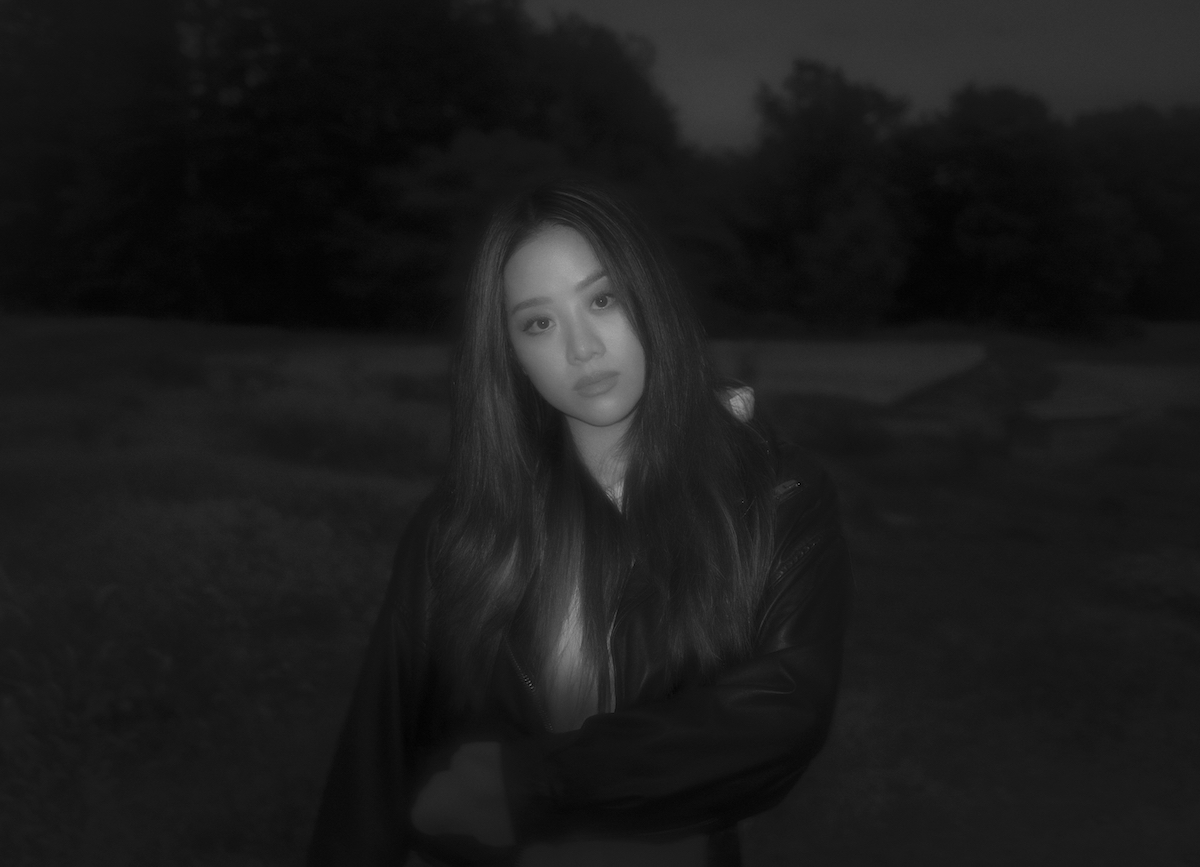
Let's talk a bit more on your music journey. You have such an interesting path! You've been posting music for a while, you sing in multiple octaves, and you graduated from Berklee – all huge things. What’s your journey been like for you?
Celine Wanyi: The journey has been both challenging and rewarding. Berklee was amazing – it gave me the tools I needed and expanded my knowledge on a technical level. But beyond that, I also started working with a vocal coach named Shelley, who’s an opera singer based in New York. We do Zoom classes, and she’s really helped me unlock a lot of my potential. I found out that I’m a coloratura soprano, which means I have a very high voice type, and my higher notes come much more naturally to me than the lower ones. It’s actually a bit of a surprise – before I started working with Shelley, I didn’t know how much potential my upper range had. I always assumed it was harder for me to sing high, but the high notes come with much more ease. In fact, I get more tired singing low notes than I do when I sing high notes, which is wild!
It’s almost like a funnel. My lower range is lighter and airier, and it doesn’t have as much depth or body to it. But when I sing higher, everything just clicks into place if I have the right resonance and support. I’ve even been able to unlock my whistle register, which I had no idea I was capable of doing. It’s pretty surreal.
Did you always know you wanted to pursue music?
Celine Wanyi: Yeah, growing up, I was mostly listening to pop music – artists like Celine Dion, Mariah Carey, Whitney Houston, and of course, when Ariana Grande released her first album, I was obsessed! I also loved boy bands – NSYNC, Backstreet Boys, Westlife – the whole pop scene. I loved how they harmonized, and I really connected with the way they sang. When I was in high school, I got really into jazz and R&B, and that was something that deepened when I went to Berklee. Berklee is known for its jazz program, so all of the harmony I learned there was rooted in jazz. It felt like a natural progression, and I loved how jazz allowed me to explore different rhythms, vocal techniques, and harmonies. I think my love for those genres really shaped the way I approach music now.
Singing and songwriting came first for me. I didn’t have formal vocal training – my training was more like karaoke and learning from singers I admired. I grew up watching Disney movies and listening to a lot of pop music, which shaped my love for music. I did some singing competitions, but pop music is very different from classical training, so it’s been a learning experience.
So how would you say you found your own sound?
Celine Wanyi: I think my journey has been about figuring out how to represent myself authentically. With so many influences, it was about blending them into something that felt uniquely mine. One thing I’ve been focusing on is how to produce my own music and write songs that truly reflect who I am. Writing songs is one thing, but creating music that really sounds like me – that’s a whole different challenge. But I think that’s the beauty of it all. It’s a process of figuring out what works for my voice, what feels true to me, and then finding ways to share that with others.
What was it like to go from producing your own music to working with a producer on “shadow of you”?
Celine Wanyi: It’s definitely been more collaborative. It’s like being a chef who’s working alongside another chef in the kitchen, just bouncing ideas back and forth. You’re discussing what ingredients to add, what could elevate the dish. That kind of collaboration really opens up your creative mind. That said, I still love handling my own vocals. I think that’s where I really shine – arranging my own harmonies, adding vocal stacks, and knowing how to perform it best for my voice. Having that control over the vocal elements is something I really appreciate.
I admire so much that you take the reins on your own vocal production. I don’t think people realise how hard that is.
Celine Wanyi: Absolutely. You really need to be meticulous – almost obsessive about it. You’re thinking, okay, we need to fix this part at bar 16, and then let’s adjust the outro at bar 34, and it’s a lot of back and forth. But it’s also rewarding when you get it right, even though it can be overwhelming at times.
Was producing something that you were always interested in, or did it come out of necessity?
Celine Wanyi: It came out of necessity. I got frustrated with people not understanding exactly what I wanted to create, so I thought, “If I want to communicate my vision better, I need to learn how to produce myself.” It’s kind of a problem-solving tool for me.
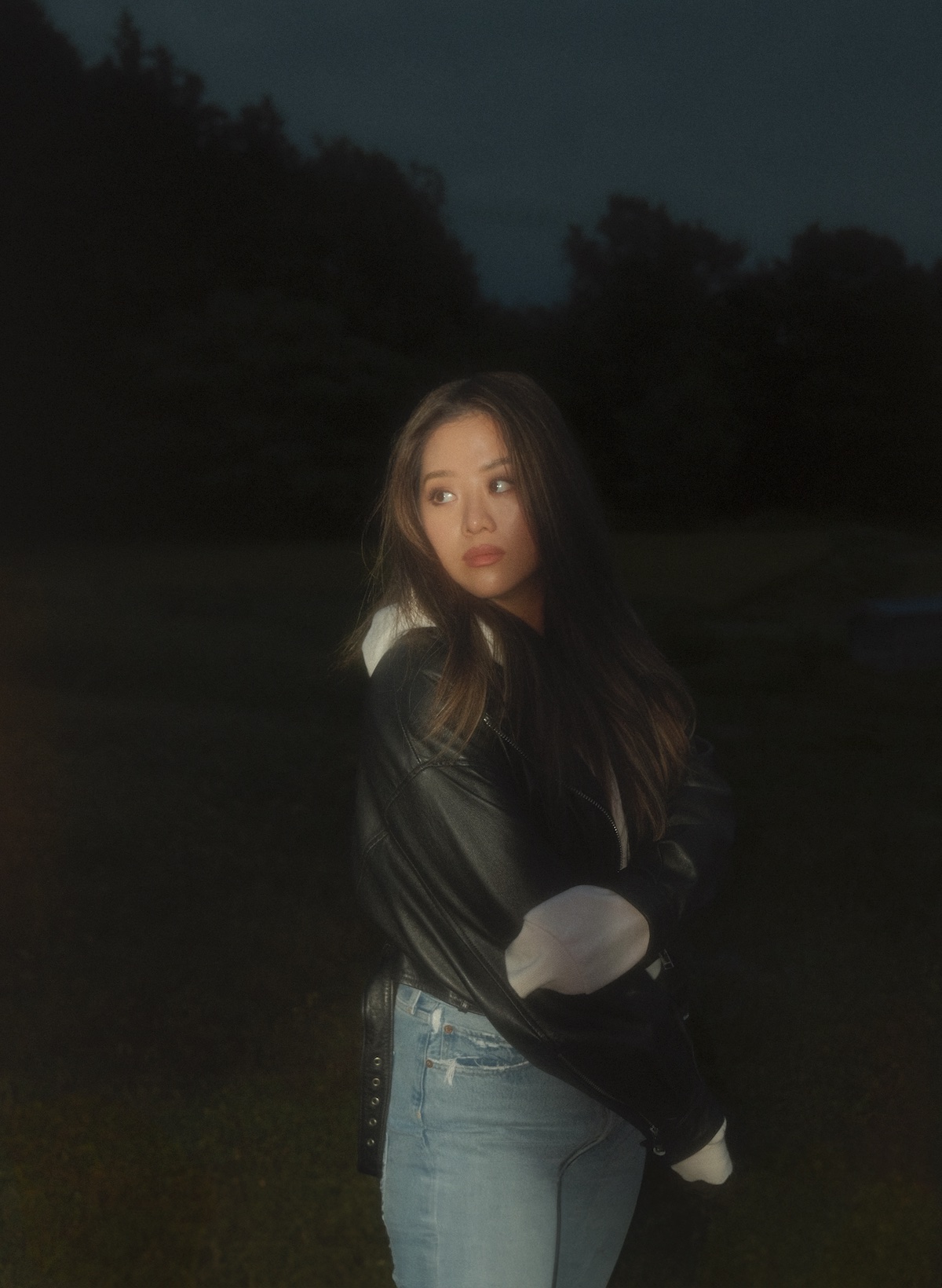
Let’s talk about self-discovery, which has been a big theme for you recently. How does that factor into your music now?
Celine Wanyi: Self-discovery, for me, has been about maturing and understanding myself better. Over the past couple of years, I’ve gone through some tough personal experiences. Some of them have been difficult, like dealing with heartbreak, loss, and disappointments in relationships. But through all of that, I’ve also learned to love and take care of myself more. I’d describe my music now as heartbreak therapy. It’s a way to process those emotions and experiences.
I love that. And you’ve also talked about how your multicultural background has influenced your artistry. Could you tell us more about that?
Celine Wanyi: Yeah, it’s definitely shaped my music. I suppose it’s a part of me that comes out naturally. Navigating the blend of my Eastern upbringing with Western music is something I’m still exploring, especially in terms of reaching my audience. It’s definitely an ongoing process. Even something as simple as figuring out the best time zone to post content for my followers across different regions can feel like a balancing act. But when it comes to the music, it’s about figuring out how to represent my upbringing without feeling restricted. I’m still working through that, but it’s something I hope to explore more in future music.
Do you think cultural influence is something you have to balance in your career?
Celine Wanyi: It’s challenging, for sure. Growing up in an Asian family, there’s a lot of pressure to not disappoint your family and to succeed in a way that meets their expectations. I think I’m still learning how to balance staying true to myself while also considering my family’s expectations. It’s about making myself proud, without letting anyone else down in the process, and that’s definitely something I’m still figuring out. It’s something I’ve been exploring a lot. And honestly, it’s kind of beautiful how my upbringing has shaped the music I make. It just happens naturally. I think it’s part of who I am, and whether I’m consciously trying to do it or not, my cultural influences come out in my sound. And I think that’s really special.
I think that's fantastic because I certainly didn’t grow up with many artists that looked like me, so it’s really cool to see you centering that while taking such a control over your craft.
Celine Wanyi: Yeah I also think people are still learning how to talk about Asian music in the right way. I think I’m learning too. Like, I don’t really know the exact right words to use, and I’m figuring that out too on this journey. That’s literally because there’s nobody like us in the industry. Like if you say ‘artist of color’ it’s also like, I wouldn’t be called that in Asia. And I don’t see my music being specific to Asia either. I do think it’s important to say that, because as much as I am from Asia, being pro-Asia is not the message. The message I wanna put out is to be yourself in whatever form that is, and to learn to love all the parts of yourself, even the ones that aren’t necessarily all glamorous, and like, that’s what I really want to say. I think my upbringing just happens to be my upbringing.
How did “shadow of you” help you to grow as an artist?
Celine Wanyi: “shadow of you” is definitely darker than what I had been writing before, in terms of just like moodiness and warmth, and thematically too. So definitely there’s growth in that way, but also, I think it challenged me to be a little more unconventional or creative with the way I produce my vocals. I’m not singing loudly in this song – it’s pretty low in terms of the register, but it’s definitely in a very warm place in my voice. So, you know, having to figure out how to sing that the best and make it sound effortless and smoky. Like, I wanted to keep it as easy as possible, effortless as possible. And to feel like a train of thought, like a monologue. So that was definitely challenging, but so fun. And also figuring out where my voice sits in the song was really fun too. It definitely pushed me creatively.
And what does the song represent to you in the trajectory of your career?
Celine Wanyi: A step in a more artistic direction, for sure. I think being more bold creatively. I think historically, my past music has been very clear and my last EP – it was very clear and very, not colorful, but something more colorful. Um, this one, you know, we’re going with a completely different approach. So yeah, I’m excited.
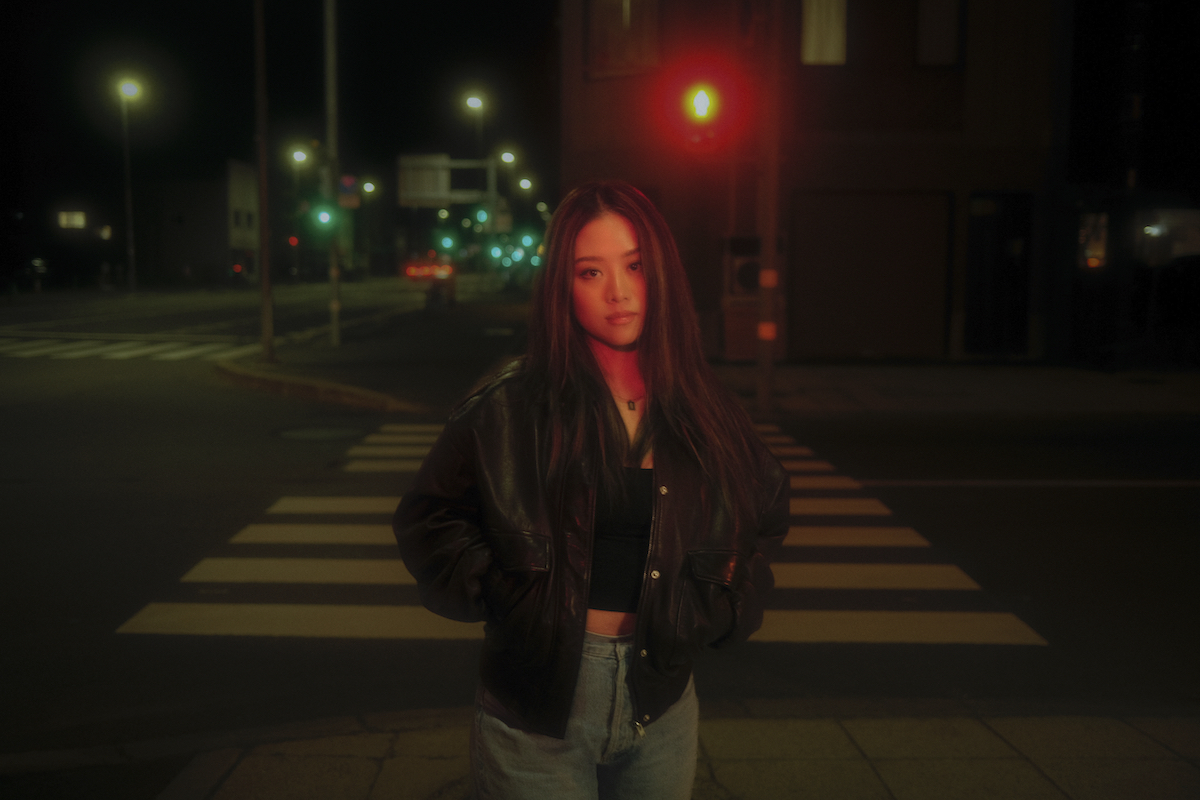
Can you tease anything about what's coming next with this EP?
Celine Wanyi: There are some… there’s one dance song. There’s one ballad. It’s gonna be very melodic and very introspective. It’s gonna be very blue. It’s moody, for sure.
I love that. And finally, what do you hope audiences will take away from this track?
Celine Wanyi: I hope they can live with it and adopt it, and you know, have it playing in the background of their lives. I know that’s been the case for me when we made it. It’s just been living in my head and on loop in me and my team’s lives. I love it so much, and I think it just sets the mood for any room that you’re in. I also hope that, you know, maybe it encourages people to be a little more open with how they feel and more compassionate.
— —
:: stream/purchase shadow of you here ::
:: connect with Celine Wanyi here ::
— —
Stream: “shadow of you” – Celine Wanyi
— — — —

Connect to Celine Wanyi on
Facebook, TikTok, Instagram
Discover new music on Atwood Magazine
© Taryn Wan
:: Stream Celine Wanyi ::

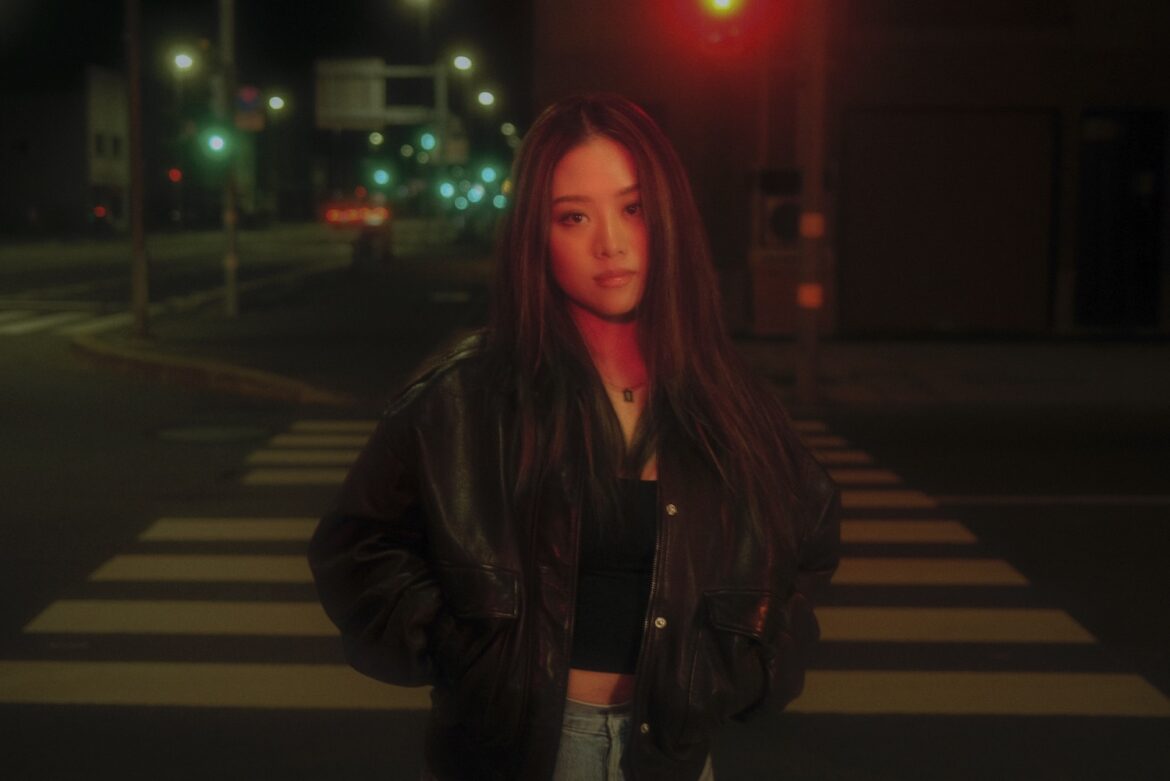
 © Taryn Wan
© Taryn Wan